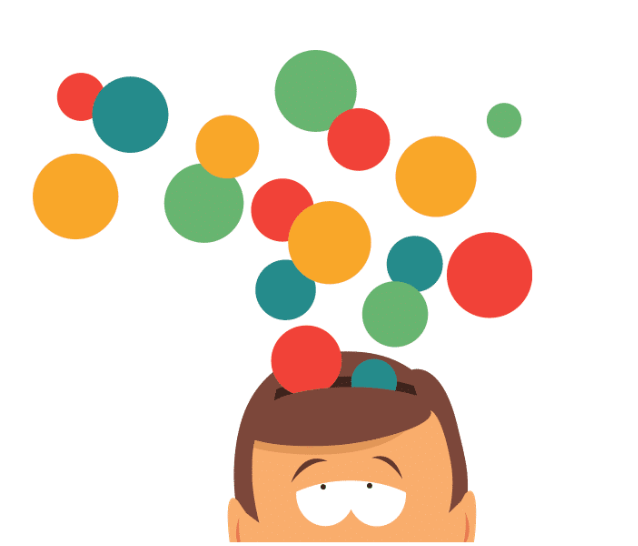
Anything can be organized, even your thoughts. We say that we can't help the way we think, but we can! There may be things in life that we have no control over, but our thoughts are not one of them.
When a thought comes to mind, you make the choice to accept or reject that thought. Your choice may be conscious or subconscious, but either way it's your choice.
Our brains function basically like computers. They are constantly processing information; incoming thoughts and outgoing actions. At times, so many thoughts are floating around in our heads that we can't keep them all straight. If we don't purge the excess in some way, we become overwhelmed, and process this information in a much slower, less efficient way than we would like.
The list below provides 6 tips to help organize your thoughts. My hope is that these tips will provide some relief for the barrage of thoughts that come from our fast-paced lives. Clutter is clutter, whether it comes in the form of things in our homes, or the thoughts in our brains. We need to purge clutter from our brains, just like we purge clutter from our homes.
Document your thoughts - This seems like a simple idea and it is. There are times when we have ideas, or thoughts about a multitude of things. If you don't get those things out of your head and documented in some way, you're in danger of forgetting them, or becoming overwhelmed. Use the medium that works best for you such as - pen & paper, text message, voice message, phone app, etc.
Sort your thoughts - After you document all your thoughts, tasks, concerns, ideas, questions, etc., sort them into their respective categories.
Prioritize your thoughts - Due dates and deadlines are priorities based on importance and urgency. Many times, due dates and deadlines determine our priorities. Other times, our troubles cause us to worry, and those thoughts become our priority. Taking an action on those worrisome thoughts, however small it may be, can possibly reduce the stress, so you can purposefully re-prioritize the thought for another time.
Reframing a thought - Reframing refers to changing the way a thought, concept or idea is considered. This can be helpful when you are problem solving. Looking at an issue in a different way may provide a viable solution.
No multi-tasking - It's been determined that multi-tasking is counter-productive. When you try to perform more than one task at a time, your brain spends more time trying to switch between tasks, or thoughts. Focus on one thought at a time for optimal productivity.
Mental clarity - Sometimes we need a break. Thinking can be exhausting. In order to organize our thoughts, we need mental clarity. There are many ways to achieve mental clarity and it's different for all of us. Taking a walk in the fresh air does it for me. Meditation works for some, while exercise does it for others. Find something that works for you and practice it regularly.
Article Source: http://EzineArticles.com/10379051